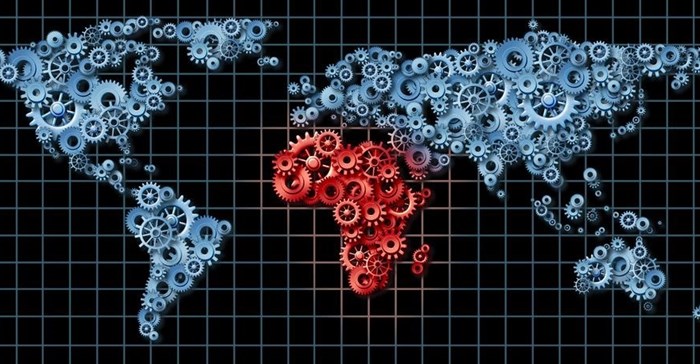The evolution and revolution of business networks in Africa

But even in the last 2,000 years Africa never shied away from trade. The Kingdoms of Ashanti and Kongo were world-famous business hubs. In Libya vast desert cities can be found where ancient Berbers built elaborate irrigation systems. The Zimbabwe ruins and South Africa’s Mapungubwe had yielded evidence of extensive trade with Asian and Middle Eastern nations.
But most striking is the legacy of kingdoms that existed along the Sahel: the transitional area between the Sahara and the rest of the continent. Here numerous societies sat shoulder to shoulder, controlling the vast trade moving between Eurasia, West and Central Africa for ages.
Birthplace of business networks
Today the world is shifting gears into a new revolution, creating an opportunity for Africa to assert its legacy as the birthplace of business networks. Computational power and connectivity is shrinking the globe, changing how we compete and cooperate. Mastering pace, scale and complexity, creating channels and fostering partnerships have never been more achievable. Some have called this the 'network revolution' and it is Africa’s greatest business opportunity yet.
The continent’s recent historical deficit ironically puts it in a very convenient position. Whereas other regions have paid the expensive price of being early adopters, African companies and states can readily adopt the best in modern technology, resulting in real gains on the ground. If there are any doubts about this, just look at the spectacular penetration of mobile devices in Africa: more than any other region in the world. Consider the remarkable growth of Rwanda, which thanks to savvy technology investments has tripled its GDP since 2000.
Three-step transition
Success and growth is almost a given when developing markets jump onto the network revolution bandwagon. The real question is how to go about it. Below are three steps defining the transition.
From manual to electronic and internet-based: The network revolution is a shift from manual processes kept separate in silos. Automation and accessibility are among its pillars, opening both resources and the ability to cross-pollinate ideas. South Africa’s Department of Home Affairs has dramatically improved its service, auditability and turnaround times by going paperless. It captures all data electronically, which is shared across its footprint. This not only made for happier citizens, but opened the way to adopting the country’s award-winning Smart ID cards.
From an entity and chain to a network: Business networks are the oldest and most vital components to any enterprise’s survival. These are jealously guarded because of their fragility; all it takes is for that proverbial weak link in the chain to break. But today digital sourcing marketplaces such as Aruba are making it easy to find suppliers, partners and buyers. The mobile phone is a cornerstone to these networks: Africa is currently undergoing a farming revolution in countries such as Kenya and Tanzania, where mobile services help farmers get daily prices, share advice and even gain micro-insurance for their crops across a web of networks, not flimsy top-down chains.
From need to reach and fusion: The biggest impact of the network revolution is being born from data. We are increasingly able to quantify aspects of the world through data, be it consumer behaviour, environmental shifts, mechanical maintenance or anything that generates information about its behaviour. That may soon become everything as the Internet of Things brings sensors to every nook of our world. And fusing the resulting data in creative ways to offer new insights will be the differentiator between the haves and have-nots of tomorrow. This is extending the reach and proactivity of companies and governments beyond their traditional boundaries. One example is the Ethiopian Electric Power Corporation, which has accelerated its delivery and boosted efficiency by adopting data-centric thinking.
One element underpins all of the above: the platform. For any business or government to take advantage of the network revolution, it must consolidate its processes into a unified software platform: a powerful foundation where everything ties together. Called the 3rd Platform, this is the next step in digital technology, taking advantage of the power and scale provided by modern data centres and connectivity.
This consolidation pays dividends. Research from McKinsey & Company shows that networked enterprises using collaborative technology to connect processes to customers, suppliers, and partners outpace their peers in nearly every category of business performance. Africa is primed to take the network revolution by the horns and reassert itself as the birthplace of business.























